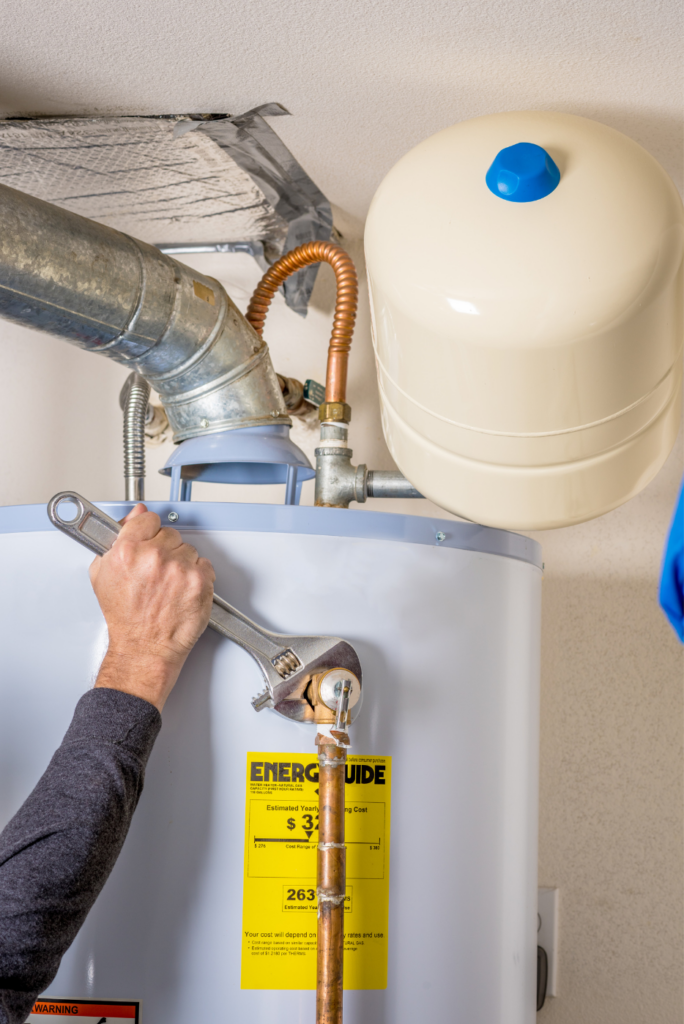The author is making a number of good points relating to Common Problems with Tank Water Heaters in general in this content just below.

Envision beginning your day without your regular hot shower. That currently sets an inadequate tone for the remainder of your day.
Every house needs a dependable hot water heater, yet just a few understand just how to manage one. One simple method to keep your water heater in top shape is to check for faults frequently and also fix them as soon as they show up.
Bear in mind to shut off your water heater before smelling about for mistakes. These are the hot water heater faults you are most likely to run into.
Water as well hot or too cold
Every water heater has a thermostat that determines exactly how hot the water gets. If the water coming into your home is also hot regardless of setting a convenient optimum temperature level, your thermostat might be damaged.
On the other hand, as well cold water might result from a stopped working thermostat, a broken circuit, or improper gas circulation. For instance, if you use a gas water heater with a broken pilot burner, you would obtain cold water, even if the thermostat is in ideal condition. For electric heating systems, a blown fuse might be the wrongdoer.
Not nearly enough warm water
Hot water heater come in numerous sizes, depending upon your warm water demands. If you lack hot water before everybody has had a bath, your hot water heater is too little for your family size. You need to take into consideration mounting a larger hot water heater storage tank or going with a tankless hot water heater, which takes up much less room and is more durable.
Weird sounds
There go to least five sort of sounds you can speak with a water heater, however one of the most usual interpretation is that it's time for the water heater to retire.
First of all, you need to be familiar with the typical seems a water heater makes. An electrical heater might sound different from a gas-powered one.
Standing out or banging noises generally mean there is a piece of debris in your storage tanks, and it's time to clean it out. On the other hand, whistling or hissing sounds might simply be your shutoffs allowing some pressure off.
Water leakages
Leaks can originate from pipelines, water links, valves, or in the worst-case circumstance, the tank itself. Over time, water will certainly corrode the storage tank, and discover its escape. If this occurs, you require to replace your hot water heater as soon as possible.
Nevertheless, prior to your adjustment your entire storage tank, make sure that all pipelines are in location which each valve functions perfectly. If you still need assistance determining a leakage, call your plumber.
Rust-colored water
Rust-colored water implies one of your hot water heater components is rusted. It could be the anode rod, or the container itself. Your plumber will be able to determine which it is.
Warm water
Despite exactly how high you set the thermostat, you will not get any type of warm water out of a heater well past its prime. A hot water heater's effectiveness might lower with time.
You will certainly also obtain lukewarm water if your pipes have a cross link. This means that when you activate a faucet, warm water from the heater flows in together with regular, cold water. A cross link is easy to place. If your hot water faucets still run after closing the water heater shutoffs, you have a cross link.
Discoloured Water
Rust is a significant cause of dirty or discoloured water. Corrosion within the water storage tank or a failing anode pole can trigger this discolouration. The anode rod safeguards the container from rusting on the inside and also should be inspected yearly. Without a rod or an effectively functioning anode rod, the warm water swiftly corrodes inside the storage tank. Call an expert hot water heater technician to establish if changing the anode rod will certainly fix the trouble; otherwise, change your water heater.
Conclusion
Preferably, your water heater can last 10 years prior to you require an adjustment. However, after the 10-year mark, you might experience any one of these faults much more frequently. Now, you should add a brand-new hot water heater to your spending plan.
How To Troubleshoot 3 Common Water Heater Problems in Twin Cities
The Water Heater Is Leaking
- A leaky cold water inlet valve
- A loose pipe fitting
- A leaky temperature and pressure relief valve
- A corroded anode rod
- A cracked tank
Turn Off Your Water Heater:
- Shut off your gas water heater by turning the gas valve on the unit to the “OFF” position.
- Shut off your electric water by switching its power off at your electrical panel. Look for a two-pole breaker labeled “water heater” and turn it to the “OFF” position. Move the ball valve connected to the water heater to be perpendicular to the piping at a 90° angle.
Look for the Leak:
Depending on whether the water is coming from the tank's top or bottom, you’ll want to look for the leak in different locations.
If the leak comes from the top of the tank, carefully look for water escaping from the cold water inlet valve or loose pipe fittings. Rusted hot and cold water valves can have loose connections with the tank, with water leaking out of them.
https://mspplumbingheatingair.com/blog/how-to-troubleshoot-3-common-water-heater-problems
Do you enjoy reading about Common Problems with Your Home Water Heater? Write a remark further down. We would be delighted to find out your feelings about this blog posting. We hope that you come back again later on. Sharing is caring. You just don't know, you will be helping someone out. We truly appreciate reading our article about Water Heaters Problems.
The right fix? Ring!
Comments on “Everyday Water Heater Issues”